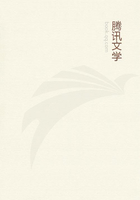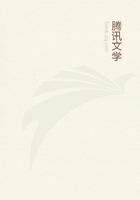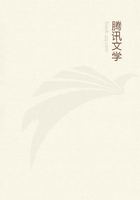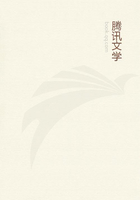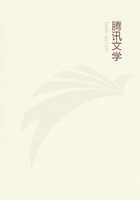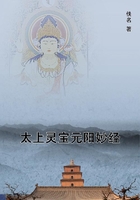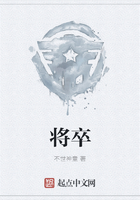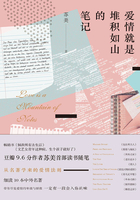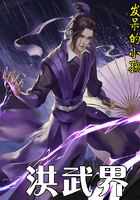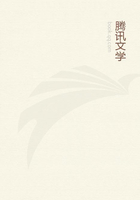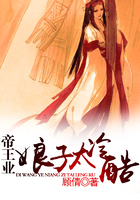Numerous inscriptions, which may be regarded as dating, in their origin, from about the middle of the third millennium before Christ, speak of these supernatural beings, and also of others similar.One of the most perfect of these inscriptions is a large bilingual tablet of which a duplicate written during the period of the dynasty of Hammurabi (before 2000 B.C.) exists, and which was afterwards provided with a Semitic Babylonian translation.This inscription refers to the evil god, the evil /utukku/, the /utukku/ of the plain, of the mountain, of the sea, and of the grave; the evil /?êdu/, the glorious /al?/, or divine bull, and the evil unsparing wind.There was also that which takes the form of a man, the evil face, the evil eye, the evil mouth, the evil tongue, the evil lip, the evil breath; also the afflicting /asakku/ (regarded as the demon of fever), the /asakku/which does not leave a man: the afflicting /namtaru/ (fate), the severe /namtaru/, the /namtaru/ which does not quit a man.After this are mentioned various diseases, bodily pains, annoyances, such as "the old shoe, the broken shoe-lace, the food which afflicts the body of a man, the food which turns in eating, the water which chokes in drinking," etc.Other things to be exorcised included the spirit of death, people who had died of hunger, thirst, or in other ways; the handmaid of the /lilu/ who had no husband, the prince of the /lilu/who had no wife, whether his name had been recorded or unrecorded.
The method of exorcising the demons causing all these things is curious.White and black yarn was spun, and fastened to the side and canopy of the afflicted person's bed--the white to the side and the top or canopy, the black to the left hand--and then, apparently, the following words were said:--"Evil /utukku/, evil /al?/, evil /êdimmu/, evil /gallu/, evil god, evil /rabisu/, /labartu/, /labasu/, /ahhazu/, /lilu/, /lilithu/, handmaid of /lilu/, sorcery, enchantment, magic, disaster, machination which is not good--may they not set their head to his head, their hand to his hand, their foot to his foot--may they not draw near.Spirit of heaven, mayest thou exorcise, spirit of earth, mayest thou exorcise."But this was only the beginning of the real ceremony.The god Asari-alim-nunna (Merodach), "eldest son of êridu," was asked to wash him in pure and bright water twice seven times, and then would the evil lier-in-wait depart, and stand aside, and a propitious /?êdu/ and a propitious /labartu/ reside in his body.The gates right and left having been thus, so to say, shut close, the evil gods, demons, and spirits would be unable to approach him, wherever he might be."Spirit of heaven, exorcise, spirit of earth, exorcise." Then, after an invocation of êrê?-ki-gal and I?um, the final paragraph was pronounced:--"The afflicted man, by an offering of grace In health like shining bronze shall be made bright.
As for that man, ?ama? shall give him life.
Merodach, first-born son of the Abyss, It is thine to purify and glorify.
Spirit of heaven, mayest thou exorcise, spirit of earth, mayest thou exorcise."Rites and ceremonies.
As may be expected, the Babylonians and Assyrians had numerous rites and ceremonies, the due carrying out of which was necessary for the attainment of the grace demanded, or for the efficacy of the thanks tendered for favours received.
Perhaps the oldest ceremony recorded is that which Ut-napi?tim, the Chald?an Noah, made on the /zikkurat/ or peak of the mountain after the coming forth from the ship which had saved him and his from the Flood.The Patriarch's description of this ceremony is short:--"I sent forth to the four winds, I poured out a libation I made an offering on the peak of the mountain:
Seven and seven I set incense-vases there, Into their depths I poured cane, cedar, and scented wood(?).
The gods smelled a savour, The gods smelled a sweet savour, The gods gathered like flies over the sacrificer."Following in the footsteps of their great progenitor, the Babylonians and Assyrians became a most pious race, constantly rendering to their gods the glory for everything which they succeeded in bringing to a successful issue.Prayer, supplication, and self-abasement before their gods seem to have been with them a duty and a pleasure:--"The time for the worship of the gods was my heart's delight, The time of the offering to I?tar was profit and riches,"sings Ludlul the sage, and all the people of his land were one with him in that opinion.
It is noteworthy that the offering of the Chald?an Noah consisted of vegetable produce only, and there are many inscriptions referring to similar bloodless sacrifices, and detailing the ritual used in connection therewith.Sacrifices of animals, however, seem to have been constantly made--in any case, offerings of cattle and fowl, in list-form, are fairly numerous.Many a cylinder-seal has a representation of the owner bringing a young animal--a kid or a lamb--as an offering to the deity whom he worshipped, and in the inscriptions the sacrifice of animals is frequently referred to.One of the bilingual texts refers to the offering of a kid or some other young animal, apparently on behalf of a sick man.The text of this, where complete, runs as follows:--"The fatling which is the 'head-raiser' of mankind--He has given the fatling for his life.
He has given the head of the fatling for his head, He has given the neck of the fatling for his neck, He has given the breast of the fatling for his breast."Whether human sacrifices were common or not is a doubtful point.Many cylinder-seals exist in which the slaying of a man is depicted, and the French Assyriologist Menant was of opinion that they represented a human offering to the gods.Hayes Ward, however, is inclined to doubt this explanation, and more evidence would seem, therefore, to be needed.He is inclined to think that, in the majority of cases, the designs referred to show merely the victims of divine anger or vengeance, punished by the deity for some misdeed or sin, either knowingly or unknowingly committed.
In the Assyrian galleries of the British Museum, A??ur-nasir-apli, king of Assyria, is several times shown engaged in religious ceremonies--either worshipping before the sacred tree, or about to pour out, apparently, a libation to the gods before departing upon some expedition, and priests bringing offerings, either animal or vegetable, are also represented.A??ur-ban?-apli, who is identified with "the great and noble Asnapper," is shown, in bas-reliefs of the Assyrian Saloon, pouring out a thank-offering over the lions which he has killed, after his return from the hunt.

